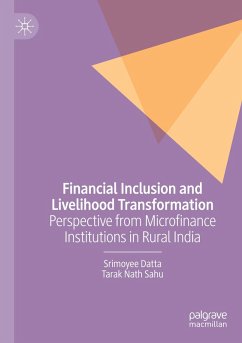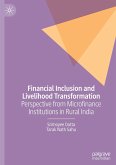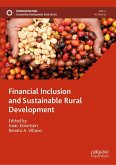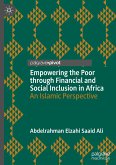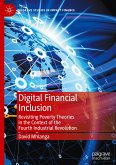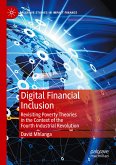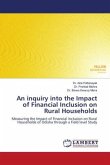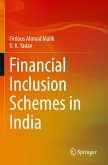This book explores the role and effect of Microfinance Institutions (MFIs) with different dimensions. It is being supported with strong empirical evidence into various parameters of MFIs directed towards inclusive finance and the transformation journey of livelihoods of its beneficiaries.
It also incorporates empirical evidence with the perception of both beneficiaries and non-beneficiaries. Starting its journey toward the path of comprehending how MFIs make their footprint among the excluded population in the selected areas, it incorporates the different outcomes of MFI lending like credit utilisation patterns, income generation, and employability. As financial stability helps to break out the vicious cycle of poverty, this book emphasises the self-dependent element for the beneficiaries and their households.
It addresses the important issue of the female counterparts in society. It shows how the MFIs work actively to generate female empowerment from multiple dimensions among the selected communities. It addresses key issues to consider for inclusive policy formulation, especially for backward communities in the backward areas and gives a realistic scenario of the MFI activities, their interactions with the respondents, the various outcomes, and areas for further developments, etc. This book is beneficial for academicians, researchers, and policymakers.
It also incorporates empirical evidence with the perception of both beneficiaries and non-beneficiaries. Starting its journey toward the path of comprehending how MFIs make their footprint among the excluded population in the selected areas, it incorporates the different outcomes of MFI lending like credit utilisation patterns, income generation, and employability. As financial stability helps to break out the vicious cycle of poverty, this book emphasises the self-dependent element for the beneficiaries and their households.
It addresses the important issue of the female counterparts in society. It shows how the MFIs work actively to generate female empowerment from multiple dimensions among the selected communities. It addresses key issues to consider for inclusive policy formulation, especially for backward communities in the backward areas and gives a realistic scenario of the MFI activities, their interactions with the respondents, the various outcomes, and areas for further developments, etc. This book is beneficial for academicians, researchers, and policymakers.

